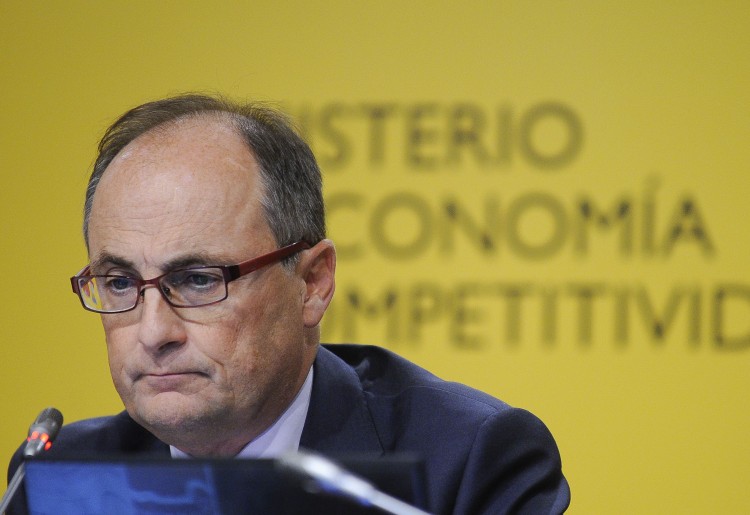Markets were down across the eurozone last week. The EURO STOXX index fell 4.8 percent to close at 2,454, as banks (down 6.9 percent) and Spain (down 6.3 percent) were hit the hardest. The euro currency also lost 0.9 percent to close at $1.29, after having rallied from $1.21 in July to $1.31 Sept. 14 in anticipation of dollar debasement via another round of quantitative easing (QE3) by the Federal Reserve.
The reason for this decline in the stock market follows a familiar pattern. Under stress, central banks and governments promise a solution to the various problems that plague the eurozone—government debt, imbalances between the core and the periphery, a leveraged banking system—and markets rally in anticipation of the delivery of these measures.
Once these measures are announced, markets needs to focus again on the real problems, which are still plentiful, and so far none of the “solutions” put forward by either the European Union or the European Central Bank has worked.
Spain Reports Optimistic Banking Stress Test
If one wants to find the reason for last week’s slide in stocks, one needs to look no further than Spain, which is next in line to receive a full-blown bailout, but has so far managed to get by with just accepting 100 billion euros of help for its banks ($129 billion).
Consulting firm Oliver Wyman reported the results of an extensive stress test for the Spanish banking system. The results were encouraging at first glance—base line assumption is for a 59.3 billion euro ($76 billion) shortfall, but the markets soon looked through this and found that the assumptions used for this scenario are too optimistic.
For example, Wyman assumes a 2013 real GDP decline of only 0.3 percent, whereas most economists put that number at around 1 percent. It also thinks that the unemployment rate, which has been rising for most of this year, will actually decline to 23.5 percent from a final 2012 estimate of 23.8 percent.
Other very unlikely estimates include the average EUR/USD exchange rate of 1.33, which is likely too high, and a decline in the IBEX stock index of only minus 0.4 percent, which is likely to be more significant given the experiences of what happened in Greece, Ireland, and Portugal.
Spain Reports Optimistic Budget
Part of the reason why the Spanish stress test lacks credibility is the fact that Spain’s budget for 2013 includes a reduction in the deficit from 6.3 percent in 2012 to 4.5 percent. If this were to be really achieved, it would certainly hamper GDP growth, which is already declining faster than the 0.3 percent that Oliver Wyman pencils in.
Nonetheless, the Spanish government is only slightly less optimistic than the consulting firm, as it predicts growth to be negative 0.5 percent. Shrinking the deficit by 1.8 percent of GDP by mostly cutting spending and some tax hikes is very likely to impact GDP negatively, and the base line assumption for the Spanish government again is that the decline in growth will slow.
As usual, another government in Europe—after Greece, Ireland, and Portugal—believes that it can turn around an economy mired in unemployment and practically in free-fall in less than a year by passing a few reform laws aimed at liberalizing the labor market. While these reforms may be good in the long term, expecting a turnaround right now is too optimistic. This is especially so, as Spain is a major source of the problems in the eurozone, and growth in other areas will remain sluggish until Spain resolves its situation.
The Week Ahead
Memories are still fresh from the last meeting of the European Central Bank one month ago, where Mario Draghi announced the Outright Monetary Purchases program. It involves buying up short-term bonds of peripheral nations—mostly geared toward Spain and Italy—with a maturity of less than three years.
Without anybody having asked for the activation of the program, the ECB will meet again next week, and given the existence of the OMT, no further asset purchases will be announced. In its quest for evermore easing, markets are speculating that the ECB might reduce its main refinancing rate to 0.50 percent from 0.75 percent.
Most banks in the core, however, are not using the main refinancing operation anymore as they are flush with deposits—many coming from the periphery—and loaded up on the longer term refinancing operation (LTRO) early this year. A reduction in rates would therefore be unlikely to stimulate economic activity, but would reduce funding costs for peripheral banks, which will use the cash to plug up capital shortfalls and not lend it out to consumers.
Given the fact that inflation perked up in September to 2.7 percent year over year and the fact that the ECB and the core wants to commit the periphery to more structural reform before adding further easing, it is unlikely that they will cut rates now, despite the fact that the economy is turning south.
In terms of this week’s economic data, Spanish and Italian unemployment figures as well as euro area retail sales will be of interest.
The Epoch Times publishes in 35 countries and in 19 languages. Subscribe to our e-newsletter.







